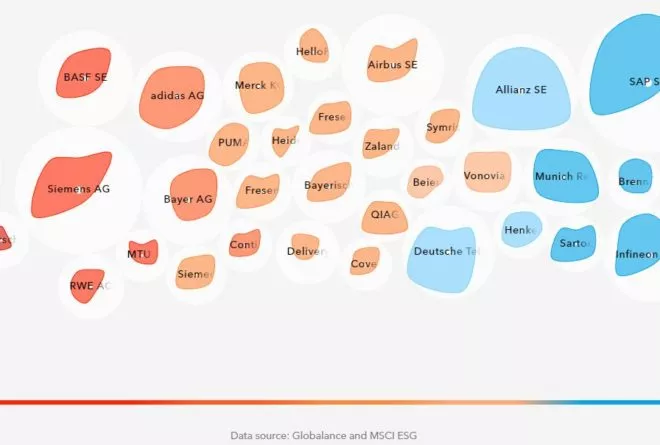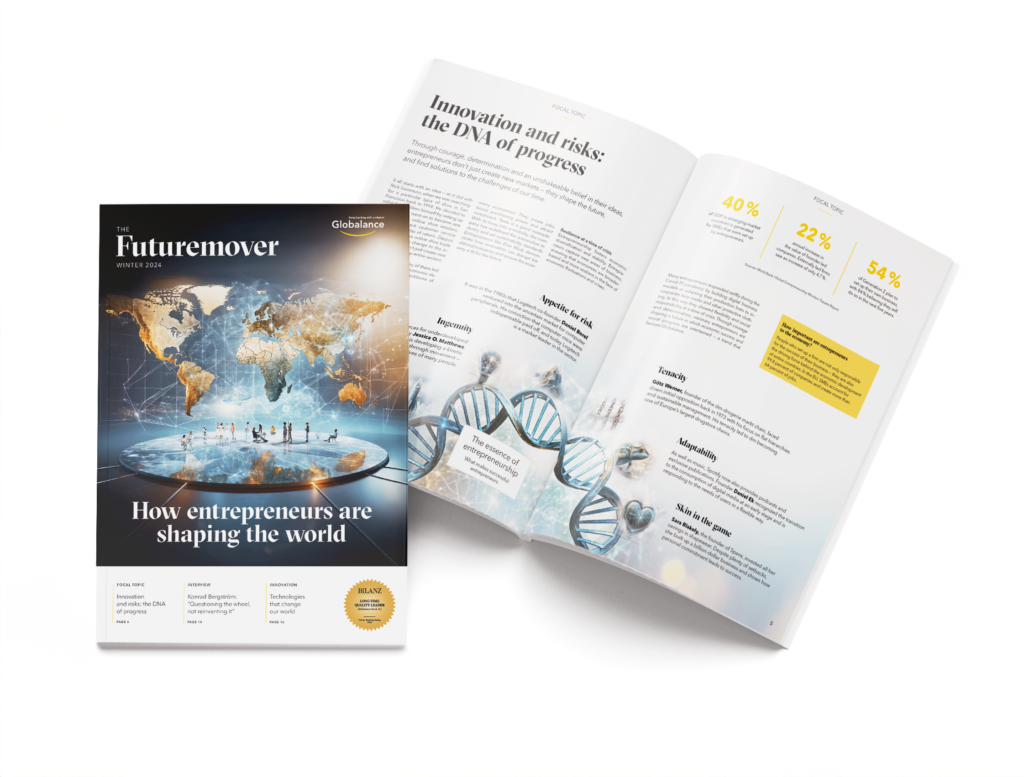News & Trends
Looking ahead to the future
Karin Frick, Head of Think Tank at the GDI Institute which analyses trends and countertrends in the economy, society and the consumer field.
Megatrends are a constant topic of conversation. What are the developments which are passing under our radar or which we are underestimating?
Experiencing shortages is a normal part of life. But in a data-driven economy superfluity is the norm, and different rules and principles apply from those in an industrial-era world of shortages. In a digital economy there’s more than enough of everything. A digital good can be consumed by one person while still being available to anyone else. In the case of virtually all the products that we now consider to be so exclusive – just as music CDs once were – it’s possible to break the link between ownership and use. Success always depends on intangible assets: networking, interactions, attentiveness, data, research and development, skills and talents.
On the one side prophets of doom. On the one side eternal optimists. What’s the most useful viewpoint?
The most promising approach is to look at things through the perspective of people and machines working together creatively. For instance, James Lovelock, the founder of the Gaia hypothesis, is looking forward at the age of 100 to the time when our ‘computer offspring’ will surpass us. He expects the “Anthropocene” era (the era in which humans have decisively altered the earth and life on earth) to give way to the “Novacene”* era. The new age will be shaped by more technologically advanced forms of intelligence which can think and learn more quickly and will protect people from their “natural stupidity”. He’s not afraid of the hegemony of machines since machines will recognise that they need organic life and people in order to keep the planet at a temperature that can sustain life so that it remains fit to live in.
What will be the social consequences of this change?
Social developments are highly dependent on the distribution of the wealth of data that is available. The more data somebody has, the better his product will be; the better the product, the more data will be able to be collected; the more data you can amass, the more talents you will be able to acquire; the more talents you can acquire, the better the product will become… The less control companies have over the data, the more entrenched social hierarchies will become, and a new class system will be created. A narrow upper class which shapes and runs the system, a broad middle class which adapts and comes to terms with the system, and a growing lower class whose docility is maintained by the system, as well as a small class of outsiders who try to withdraw from the system insofar as it is possible to do so.
„The further technology advances, the less apparent it becomes.“
K. FRICK
Many people don’t think that a world which is over-reliant on digitisation and automation is desirable. How should we direct the development of technology by human beings?
The further technology advances, the less apparent it becomes, and the less attention we have to pay to it. We’ll only notice it when something doesn’t work properly. Convenience always takes precedence. Nowadays hardly anyone wants to go without electricity, washing machines, travel opportunities or a smartphone for any length of time. Human development is crucially dependent on who controls the data, rather than on the level of digitisation in a product.
Are you optimistic about the future of humanity?
You’ll never get very far unless you hope to be able to change things. Optimism helps us to cope better with the challenges of life, it makes us more capable, more curious, and more innovative.
*James Lovelock: Novacene: The Coming Age of Hyperintelligence. London: Allan Lane 2019.
Karin Frick – “The visionary”
Since finishing her studies at the University of St. Gallen (HSG) Karin Frick has worked in various roles dealing with pioneering sectors, social change, innovation and changes affecting people and markets. She has worked as the editor-in-chief of the renowned quarterly magazine “GDI Impuls”, and as the Managing Director of the Swiss Society for Futures Studies (swissfuture). She has also worked for big-name companies analysing trends in the consumer goods and services sectors.









